第3章 SOMETHING TO BE DONE(3)
masts, with topmasts spliced on in true nautical fashion, with shrouds, ratlines, gaffs, and flag-halyards. From the gaff of one, two gay flags hung limply, one a checkerboard of blue and white squares, the other a white pennant centred with a red disc. It was the international code signal of distress.
On the far corner of the compound fence a hawk brooded. The man watched it, and knew that it was sick. He wondered idly if it felt as bad as he felt, and was feebly amused at the thought of kinship that somehow penetrated his fancy. He roused himself to order the great bell to be rung as a signal for the plantation hands to cease work and go to their barracks. Then he mounted his man-horse and made the last round of the day.
In the hospital were two new cases. To these he gave castor-oil.
He congratulated himself. It had been an easy day. Only three had died. He inspected the copra-drying that had been going on, and went through the barracks to see if there were any sick lying hidden and defying his rule of segregation. Returned to the house, he received the reports of the boss-boys and gave instructions for next day's work. The boat's crew boss also he had in, to give assurance, as was the custom nightly, that the whale-boats were hauled up and padlocked. This was a most necessary precaution, for the blacks were in a funk, and a whale-boat left lying on the beach in the evening meant a loss of twenty blacks by morning. Since the blacks were worth thirty dollars apiece, or less, according to how much of their time had been worked out, Berande plantation could ill afford the loss. Besides, whale-boats were not cheap in the Solomons; and, also, the deaths were daily reducing the working capital. Seven blacks had fled into the bush the week before, and four had dragged themselves back, helpless from fever, with the report that two more had been killed and kai-kai'd by the hospitable bushmen. The seventh man was still at large, and was said to be working along the coast on the lookout to steal a canoe and get away to his own island.
Viaburi brought two lighted lanterns to the white man for inspection. He glanced at them and saw that they were burning brightly with clear, broad flames, and nodded his head. One was hoisted up to the gaff of the flagstaff, and the other was placed on the wide veranda. They were the leading lights to the Berande anchorage, and every night in the year they were so inspected and hung out.
He rolled back on his couch with a sigh of relief. The day's work was done. A rifle lay on the couch beside him. His revolver was within reach of his hand. An hour passed, during which he did not move. He lay in a state of half-slumber, half-coma. He became suddenly alert. A creak on the back veranda was the cause. The room was L-shaped; the corner in which stood his couch was dim, but the hanging lamp in the main part of the room, over the billiard table and just around the corner, so that it did not shine on him, was burning brightly. Likewise the verandas were well lighted. He waited without movement. The creaks were repeated, and he knew several men lurked outside.
"What name?" he cried sharply.
The house, raised a dozen feet above the ground, shook on its pile foundations to the rush of retreating footsteps.
"They're getting bold," he muttered. "Something will have to be done."The full moon rose over Malaita and shone down on Berande. Nothing stirred in the windless air. From the hospital still proceeded the moaning of the sick. In the grass-thatched barracks nearly two hundred woolly-headed man-eaters slept off the weariness of the day's toil, though several lifted their heads to listen to the curses of one who cursed the white man who never slept. On the four verandas of the house the lanterns burned. Inside, between rifle and revolver, the man himself moaned and tossed in intervals of troubled sleep.